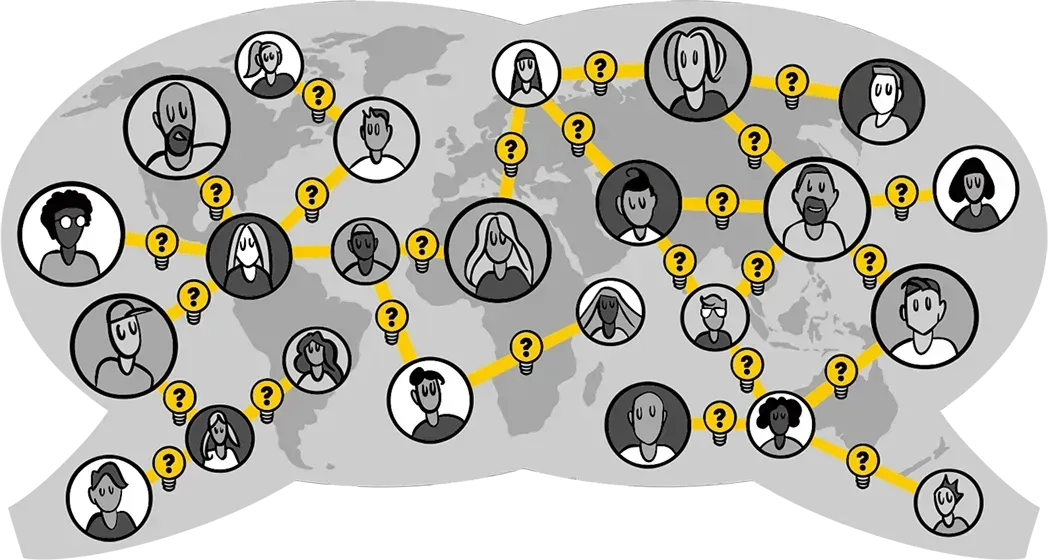Challenging Relativism and Subjective Truth with Objective Reasoning
Enhance Critical Thinking to Navigate Differences in Reality and Truth

How Navigating Beliefs Helps Combat Disinformation
Navigating Beliefs (NB) provides individuals with the tools to critically analyze information, identify misinformation, and engage in respectful discussions about false claims. By using questioning techniques and evidence-based reasoning, NB helps individuals separate fact from fiction while fostering constructive dialogue instead of confrontation.
NB encourages individuals to examine sources, evaluate biases, and challenge misinformation in a way that promotes understanding rather than defensiveness. These techniques allow participants to engage with misleading claims effectively while encouraging others to think critically about the information they consume and share.
Find the Best Fit for You
You've landed on a page about Navigating Beliefs, a method to help people reflect on the quality of their reasoning through civil conversation. Take our free self-paced course at NavigatingBeliefs.com or learn more about the organization behind these world changing projects.

Navigating
Beliefs
You've arrived at Navigating Beliefs—a new name for the approach born out of Street Epistemology. Although our name has changed, our vision remains the same: A more rational world through civil conversations.

Street Epistemology
International
The organization behind the development of the Navigating Beliefs course, supporting the Navigating Beliefs method and offers resources for critical thinking and civil conversation.
Promote Objectivity in Conversations and Reasoning

Tools to Navigate and Challenge Relativistic Thinking
Relativism often leads to misunderstandings about what is true. NB helps individuals identify and critically evaluate subjective truth claims, encouraging objective reasoning. By exploring the roots of relativistic beliefs, NB provides practical techniques for fostering awareness of biases and questioning assumptions.
In discussions about subjective truth, NB promotes respectful dialogue that allows individuals to critically examine their beliefs without escalating conflict. Whether exploring the concept of universal truth or examining the validity of "truth is all perception," NB provides a clear framework for analyzing claims. More insights into fostering such dialogues can be found in our curated resources.
Exploring the Limits of Subjectivity in Reasoning
Many relativistic arguments are based on subjective perspectives of reality. SE provides tools for exploring the limits of these subjective beliefs, encouraging individuals to reflect on how their reasoning might be influenced by biases or assumptions. By examining the philosophical roots of relativism, SE helps individuals understand the importance of shared reality in productive dialogue.
SE practitioners learn to question subjective truth claims constructively, introducing objectivity into conversations about difficult topics. Whether challenging the statement "truth is personal" or addressing misconceptions about "no universal truth," SE practitioners can create space for more meaningful and rational conversations. Learn more about techniques for handling such discussions by reviewing our practical guide.

Free Learning Course to Explore Objective Truth
Ready to challenge relativistic thinking and explore objective truth? The Navigating Beliefs course offers a practical, accessible way to learn the principles of Street Epistemology, helping you foster critical thinking and engage with subjective claims constructively.
GO TO COURSE ➔


